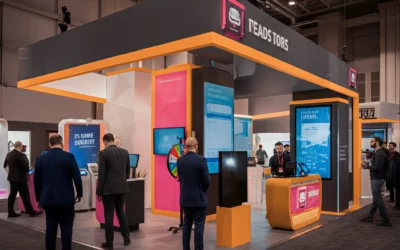How do you normally measure the success of your event? If you answer, “The caterer didn’t run out of food” or “Everyone seemed to like the entertainment,” then you’re not truly tracking event performance.
The absolute best way to track and measure your event’s success is through event Key Performance Indicators – or KPIs for short. The following 9 KPIs will help you track your event’s ROI (return on investment).
Event KPIs
- Total Registrations
This KPI is typically top of mind for most event planners. Obviously, total registrations is one of the clearest ways to track performance.
- Registration by Ticket Type
If you want to get even more specific about your registration data, you can look at registration by ticket type. When you divide registration performance into ticket type, you get a clearer sense of ticket types and price points your attendees found most appealing.
- Event Check-ins
You ultimately want to know how many attendees actually showed up and checked-in compared with total number of registrations. Ideally, everyone who registered would attend your event. But this typically doesn’t happen. This KPI will give you a baseline.
If you find there is an unusual discrepancy between registrants and check-ins, you’ll want to dive in and determine why you are losing people. You may find you need more promotion leading up to the event to build that all-important excitement.
- Social Media Mentions
Social media mentions are when your audience uses a special handle or hashtag to give your event a “shout out.” Planners should use hashtags in all marketing materials and be sure those hashtags are simple and unique to make them as ‘sharable’ as possible. Tracking social mentions helps you determine if your marketing efforts are generating the buzz you desire.
- Gross Revenue
This KPI is usually considered the Holy Grail of metrics. At least, it’s the one most planners rely on. While planning the event, you will have initial revenue goals. You’ll want to gauge the difference between intended revenue and gross revenue to see how realistic you were. If there is a big discrepancy, you’ll need to dig further and analyze more to see what may have gone wrong.
But even gross revenue does not tell you the entire story of your event’s success. For that we must look for…
- Cost to Revenue Ratio
Gross revenue only becomes an actionable insight once you compare it with the total cost of your event. This KPI highlights how much profit (or loss) your event generated. This is the KPI that stakeholders will be most interested in. If this KPI adds up, you can clearly show that your efforts have resulted in an unquestionable gain for your company. This may mean more resources and a bigger budget next year!
- Number of Qualified Sales Leads
If the goal of your event was to generate prospects for your sales team, then you’ll want to measure the number of qualified leads. “Qualified” will mean different things to different companies, so be sure you have defined detailed criteria before measuring this one.
- Customers Acquired
The next logical step after analyzing qualified leads is to determine number of customers acquired. To get clean data, you’ll have to ensure the customer was acquired due to the event. Having the right event data integrations in place will really help you pull these numbers.
- Cost per Customer Acquisition
There’s no doubt that the number of new customers acquired is a key metric. But perhaps the more important metric is how much did it cost you to acquire each one of those new customers? Knowing the specific time and budget required to get these gains is a key indicator of your event’s impact on the company’s bottom line.
The Wrap
This is by no means an exhaustive list of event KPIs. But these are some of the most critical and the ones that will help you measure whether or not your efforts paid off.
If you need help tracking these kinds of KPIS, reach out to us. That’s our specialty. We don’t just help planners choose caterers and venues, though we certainly can help you do that. But what we REALLY specialize in is helping event planners shift their mindset so they strategically plan events. When you do this, you can reach all of your goals and show stakeholders that your team offers real value.
You might also like…
Top 10 U.S. Meeting Destinations for 2026
Successful corporate events don’t just happen — they’re built on smart decisions, starting with...
The Trade Show Prep Guide: Boost ROI Like a Pro
Trade shows are a powerful way to elevate your brand's visibility, connect with potential...
President’s Club 2026 Ultimate Gift Guide
Luxury, Personalization, and Impact for Unforgettable Incentive Travel President’s Club isn’t just...
The Role of Corporate Event Managers is Evolving
Corporate events aren’t what they used to be. Gone are the days of basic cocktail hours and...
Revitalizing Sales Kickoffs: Strategic Insights for 2026
Gone are the days when Sales Kickoffs (SKOs) were just annual corporate pep talks. Today's SKOs...
Planning for Performance: The 2026 Guide to Mastering Incentive Travel
Here's Why Incentive Travel is Your Secret Weapon in 2026... Gone are the days when incentive...







